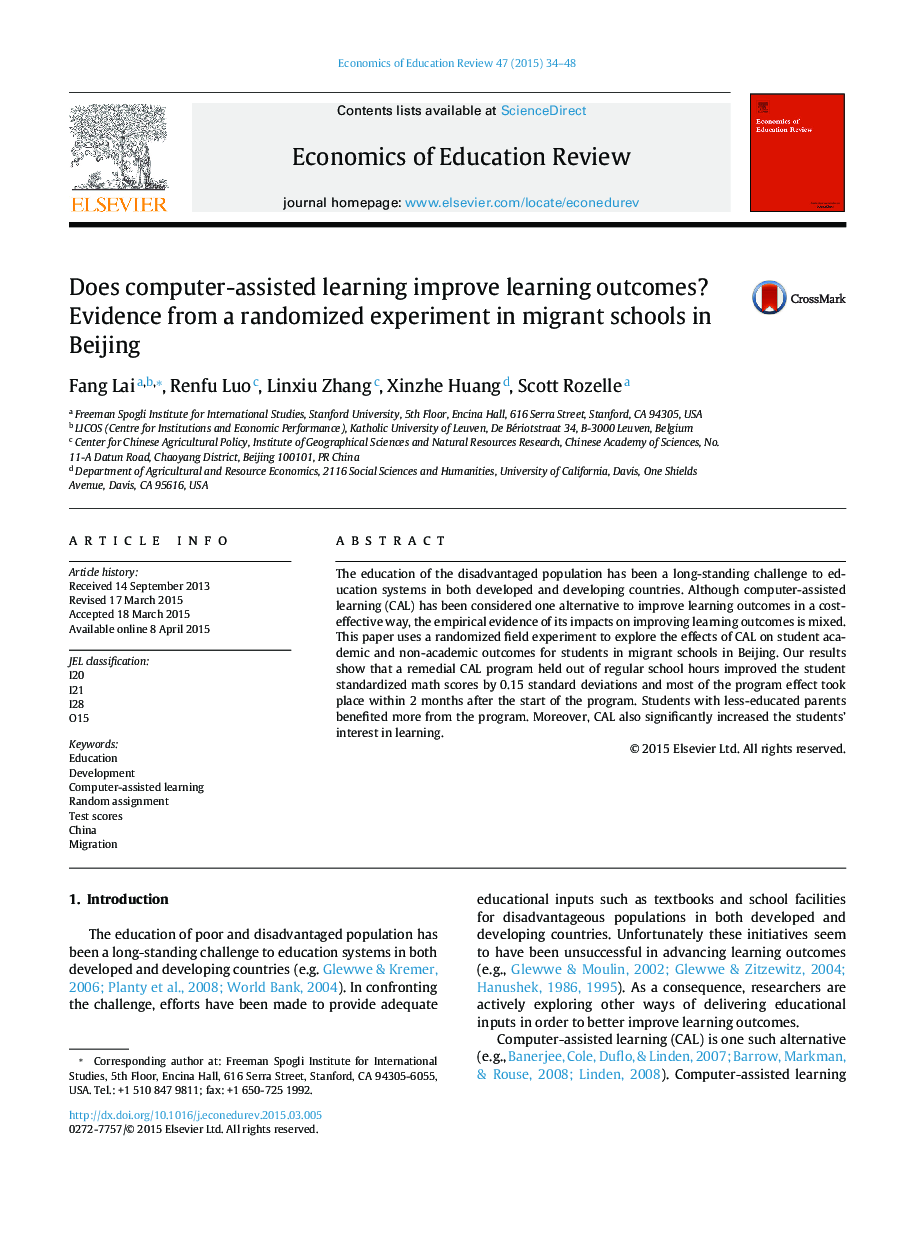| Article ID | Journal | Published Year | Pages | File Type |
|---|---|---|---|---|
| 6840851 | Economics of Education Review | 2015 | 15 Pages |
Abstract
The education of the disadvantaged population has been a long-standing challenge to education systems in both developed and developing countries. Although computer-assisted learning (CAL) has been considered one alternative to improve learning outcomes in a cost-effective way, the empirical evidence of its impacts on improving learning outcomes is mixed. This paper uses a randomized field experiment to explore the effects of CAL on student academic and non-academic outcomes for students in migrant schools in Beijing. Our results show that a remedial CAL program held out of regular school hours improved the student standardized math scores by 0.15 standard deviations and most of the program effect took place within 2 months after the start of the program. Students with less-educated parents benefited more from the program. Moreover, CAL also significantly increased the students' interest in learning.
Keywords
Related Topics
Social Sciences and Humanities
Economics, Econometrics and Finance
Economics and Econometrics
Authors
Fang Lai, Renfu Luo, Linxiu Zhang, Xinzhe Huang, Scott Rozelle,
